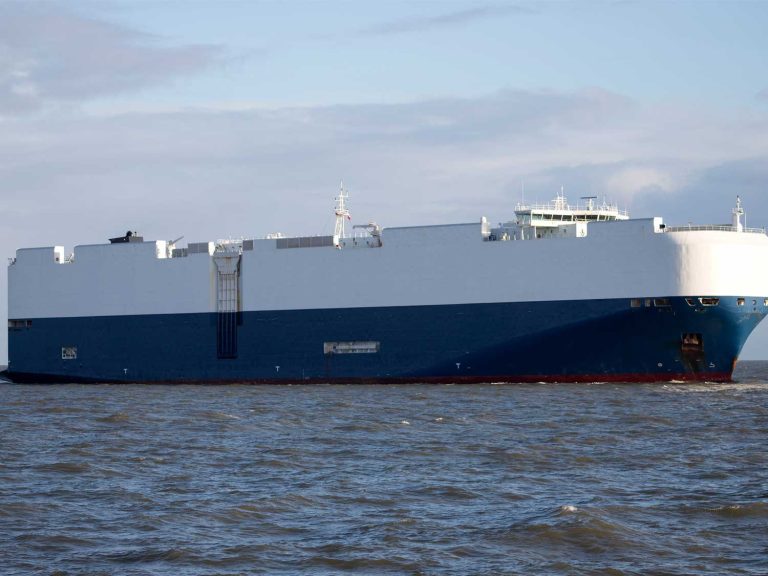
Date:
UK Carmakers Challenged While China’s Ro/Ro Fleet Eye Europe
Britain’s automotive industry is facing a historic low, as UK vehicle production in May 2025 fell to its weakest level since 1949. Yet while UK manufacturers scale back, Chinese Ro/Ro operators are expanding aggressively, driven by rising vehicle exports and a strategic push into Europe’s automotive supply chain.
According to the Society of Motor Manufacturers and Traders (SMMT), May output plummeted by 33%, marking the fifth consecutive monthly drop and the worst May performance outside the pandemic in 75 years.
Passenger car production fell by 31% due to factory retooling, restructuring efforts, and export pressures, particularly the additional 25% US tariffs on British-built cars. Commercial vehicle output was hit even harder, down 54%.
Exports also declined sharply, with overall car exports down 28% in May, with sales to the US down more than 55% and EU shipments falling by 22.5%. The US now accounts for just 11.3% of UK car exports, compared to 18.2% last year. Commercial vehicle exports slumped by over 70%, dragging total export share down to 41%, from nearly 68% last year.
While trade deals with the US, EU, and India offer a glimmer of recovery, and the UK government’s new Industrial Strategy has been cautiously welcomed, competitiveness remains constrained by high energy costs and limited global market access.
Chinese Ro/Ro Fleet Target Europe
In sharp contrast, China’s automotive and maritime sectors are expanding in tandem and targeting Europe for growth. Chinese car exports hit 6 million units last year and have already grown by another 6% in 2025.
Backed by this momentum, Chinese logistics and manufacturing giants, including BYD, Geely and Cosco are deploying a wave of new pure car and truck carriers (PCTCs) to challenge global Ro/Ro shipping. China’s top operators already operate over 330,000 CEUs of deep-sea capacity, with more than 160 additional car carriers on order for delivery by 2028.
The strategy is clear: support Chinese auto exports, then aggressively seek return cargo from the UK, Europe and the US. Some of the largest PCTCs in the world, like BYD’s 9,200-CEU vessels, are already sailing, with their maiden voyages underway.
Unlike traditional operators, which serve a broad customer base and global networks, the Chinese model is focused and fast. With fewer port calls and less dwell time, these vessels will achieve higher utilisation and faster turnarounds, giving them a cost and scheduling advantage.
However, Chinese carriers currently lack established backhaul cargo volumes. To fill empty capacity on westbound legs, the expectations is that they will cut freight rates, potentially sparking a rate war in the PCTC market. While this may benefit cargo owners in the short term, it raises serious concerns about rate dumping and market distortion.
For automotive exporters already grappling with global competitiveness, rising Chinese presence in vehicle manufacturing and Ro/Ro shipping could further disrupt market balance, especially if European importers pivot toward Chinese brands supported by their own integrated logistics infrastructure.
Metro understands the complexities of global automotive supply chains and the growing pressures facing UK manufacturers. Our multimodal freight services, OEM experience and tailored Ro/Ro solutions help keep your production lines supplied and your finished vehicles moving to market—despite rising competition.
EMAIL our managing director Andrew Smith.
